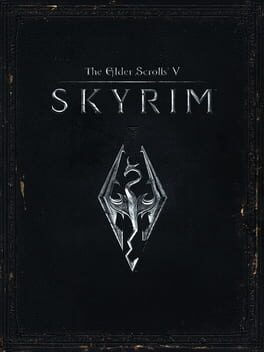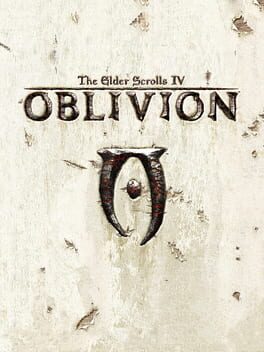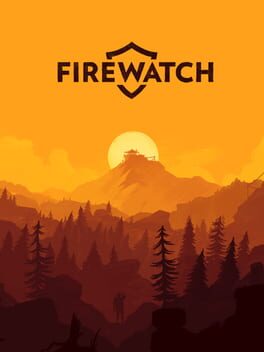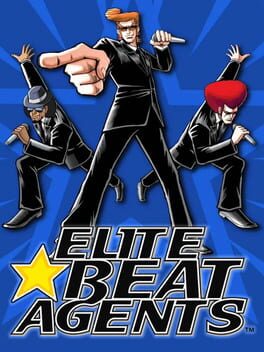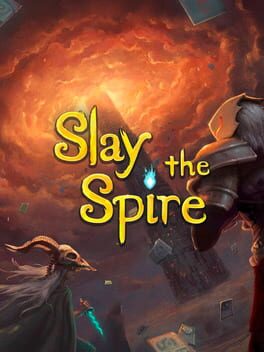Raith
At one point in time, this game ranked as one of my favorites. The world of Skyrim sucked me in with its lore and its mysteries. It provided me with a world filled with discovery where even the smallest towns had a charm of their own, and a story to tell.
As I've played more games over the years though, particularly RPG's, I've come to realize just how shallow Skyrim really is.
To start, the combat sucks. Though it fixed the problem with enemies scaling with your character in Oblivion, it still feels like there is no depth to it at all. Even with the flashy kill cinematics, most combat encounters can be summarized as "stand in front of the enemy and spam your attack until either they die or you need to heal, at which point you can just pause combat and chug 10 potions". Stealth archers are still a little broken, with enemies just not bothering to check who just shot them in the face with an arrow, and even if they do there is a good chance they will never be able to reach you due to the horrible pathfinding on the A.I. To make things worse, the magic system is stripped completely down. You will be spamming the same three or four spells for the entire game, with little thought needed as to what spell is best for the current situation or how to combo spells and abilities together.
As for the writing, it's about the same as Oblivion. Some of the questlines are fun and interesting, but a majority of them are cliche and mediocre. The characters are all forgettable, often boiling down to one characteristic and a half dozen voice lines. It's kind of impressive how little I know or care about Lydia despite spending 40+ hours with her by my side. I have no idea what her backstory is, the things she likes or dislikes, or anything really. She doesn't have a personality. The characters that stand out tend to be ones that you see frequently, like the Jarl of Whiterun and the greybeards. Again though, despite how frequently you see them throughout the game, you will never really get to know them past the one dimensional characterization they are given. Almost all of their dialogue will be to explain some lore or details about their next quest to the player.
The best part of Skyrim is without a doubt its world. The world of Skyrim is a joy to explore, filled with lore and interesting sights to see. I wish the folks at Bethesda were not so hung up on filling their games with hundreds of things to do if they are not going to spend the time to craft it all with care though, because of the dozens and dozens of caves, bandit camps and tombs I explored only a few were actually enjoyable and engaging experiences. The vast majority of them almost feel procedurally generated, with corridors and hallways that look nearly identical from location to location. I want more Black Reach and Broken Ore Grotto, less random bandit camps and caves that have the same 4 enemies in them and randomly generated loot.
It's not the worst RPG you'll ever play, but it's far from the most interesting. Hopefully one day Bethesda will make a TES game that is as interesting as the worlds they are set in.
As I've played more games over the years though, particularly RPG's, I've come to realize just how shallow Skyrim really is.
To start, the combat sucks. Though it fixed the problem with enemies scaling with your character in Oblivion, it still feels like there is no depth to it at all. Even with the flashy kill cinematics, most combat encounters can be summarized as "stand in front of the enemy and spam your attack until either they die or you need to heal, at which point you can just pause combat and chug 10 potions". Stealth archers are still a little broken, with enemies just not bothering to check who just shot them in the face with an arrow, and even if they do there is a good chance they will never be able to reach you due to the horrible pathfinding on the A.I. To make things worse, the magic system is stripped completely down. You will be spamming the same three or four spells for the entire game, with little thought needed as to what spell is best for the current situation or how to combo spells and abilities together.
As for the writing, it's about the same as Oblivion. Some of the questlines are fun and interesting, but a majority of them are cliche and mediocre. The characters are all forgettable, often boiling down to one characteristic and a half dozen voice lines. It's kind of impressive how little I know or care about Lydia despite spending 40+ hours with her by my side. I have no idea what her backstory is, the things she likes or dislikes, or anything really. She doesn't have a personality. The characters that stand out tend to be ones that you see frequently, like the Jarl of Whiterun and the greybeards. Again though, despite how frequently you see them throughout the game, you will never really get to know them past the one dimensional characterization they are given. Almost all of their dialogue will be to explain some lore or details about their next quest to the player.
The best part of Skyrim is without a doubt its world. The world of Skyrim is a joy to explore, filled with lore and interesting sights to see. I wish the folks at Bethesda were not so hung up on filling their games with hundreds of things to do if they are not going to spend the time to craft it all with care though, because of the dozens and dozens of caves, bandit camps and tombs I explored only a few were actually enjoyable and engaging experiences. The vast majority of them almost feel procedurally generated, with corridors and hallways that look nearly identical from location to location. I want more Black Reach and Broken Ore Grotto, less random bandit camps and caves that have the same 4 enemies in them and randomly generated loot.
It's not the worst RPG you'll ever play, but it's far from the most interesting. Hopefully one day Bethesda will make a TES game that is as interesting as the worlds they are set in.
When I played this around 2009, I immediately fell in love with the world of Cyrodiil. The many towns I could visit and characters to meet, along with the deep lore you could explore all drew me into it. Unfortunately, as time has passed, I've gained a more critical eye towards the games I play and Oblivion has more than a few flaws in its design. The game that I once sank hundreds of hours into is so hard to go back to now that I really can't recommend it.
The biggest problems I have with Oblivion are it's lack of depth. It lacks depth in its characters, story and combat, three areas that I now see as pivotal in a good RPG. Characters lack interesting backstories and personalities, leaving a vast majority of the characters you meet feeling like cardboard cutouts that you have already met at some point in your quest. It's worsened by the fact that almost the entirety of the games characters are voiced by 13 people, worsening the feeling of déjà vu when meeting characters.
The storylines also lack depth, with the main questline involving a generic invasion plot that doesn't feel very satisfying to conclude. There are some interesting storylines to be found in side quests and the various factions, but even then things feel cheapened when you become the leader of every guild at the same time, and nothing really changes.
Lastly, the combat feels like it lack any kind of strategy or skill leaving it feeling like a slog the longer you play. Melee characters essentially just stand in front of enemies and spam their weapon swings until things die. If at any point your health dips dangerously low, you can just pause combat and guzzle a half dozen potions to bring yourself up to full in an instant. Potions are so plentiful too that you probably will never feel like you are running low, especially if you are using healing magic to supplement your healing abilities. Mages and Archers can feel even more dull, despite at least requiring you to aim your attacks during combat. The AI often gets stuck on objects trying to reach you, so many fights will feature you sitting in a safe place while whittling the enemies health down from a few feet away. The fact that all enemies are scaled to your level starts to drag the experience down as well as random bandits you might encounter questing will take up a few minutes of your time as they soak up all the damage you throw at them.
Overall, you will spend hundreds of hours to see all the content Oblivion has to offer and come away with a handful of memorable experiences in a game that should leave you with dozens. The characters all start to blur together, the combat quickly becomes mundane and the stories are completely hit or miss. It's a shame, because the world of Cyrodiil is so interesting from an outside looking in that you really want to explore and learn more about it. In the end though, you are better off exploring one of the other countless worlds to discover. Not only will it probably eat up less of your time, you will almost assuredly come away with a better experience. Unfortunately, I think the wonderful world and lore Oblivion has to offer is best experienced through the wiki for those truly interested in learning about what it has to offer to the world of Tamriel.
The biggest problems I have with Oblivion are it's lack of depth. It lacks depth in its characters, story and combat, three areas that I now see as pivotal in a good RPG. Characters lack interesting backstories and personalities, leaving a vast majority of the characters you meet feeling like cardboard cutouts that you have already met at some point in your quest. It's worsened by the fact that almost the entirety of the games characters are voiced by 13 people, worsening the feeling of déjà vu when meeting characters.
The storylines also lack depth, with the main questline involving a generic invasion plot that doesn't feel very satisfying to conclude. There are some interesting storylines to be found in side quests and the various factions, but even then things feel cheapened when you become the leader of every guild at the same time, and nothing really changes.
Lastly, the combat feels like it lack any kind of strategy or skill leaving it feeling like a slog the longer you play. Melee characters essentially just stand in front of enemies and spam their weapon swings until things die. If at any point your health dips dangerously low, you can just pause combat and guzzle a half dozen potions to bring yourself up to full in an instant. Potions are so plentiful too that you probably will never feel like you are running low, especially if you are using healing magic to supplement your healing abilities. Mages and Archers can feel even more dull, despite at least requiring you to aim your attacks during combat. The AI often gets stuck on objects trying to reach you, so many fights will feature you sitting in a safe place while whittling the enemies health down from a few feet away. The fact that all enemies are scaled to your level starts to drag the experience down as well as random bandits you might encounter questing will take up a few minutes of your time as they soak up all the damage you throw at them.
Overall, you will spend hundreds of hours to see all the content Oblivion has to offer and come away with a handful of memorable experiences in a game that should leave you with dozens. The characters all start to blur together, the combat quickly becomes mundane and the stories are completely hit or miss. It's a shame, because the world of Cyrodiil is so interesting from an outside looking in that you really want to explore and learn more about it. In the end though, you are better off exploring one of the other countless worlds to discover. Not only will it probably eat up less of your time, you will almost assuredly come away with a better experience. Unfortunately, I think the wonderful world and lore Oblivion has to offer is best experienced through the wiki for those truly interested in learning about what it has to offer to the world of Tamriel.
2016
The soul of Firewatch lies in its characters. You play as a middle-aged man whose marriage is on the brink of collapse. Either as a way to cope with his feelings or to just avoid the problems at home, he takes up the job as a fire lookout, essentially isolating himself from all of his problems as he spends his time alone in the middle of the woods.
The story is heartfelt and compelling, and I found myself emotionally engaged with Henry's story. It isn't half-baked or forced, as the emotionally beats it hits are naturally developed through getting to know the characters during the course of the game. I can't think of a single point where the game was trying to trigger some emotional response that wasn't earned, as I really did start to understand Henry the more I played.
Unfortunately the gameplay falls flat, often leading me to wish I could skip ahead of the tedious tasks in order to get the next bit of dialogue or story beat. The gameplay can basically be boiled down to hiking from point to point to reach an objective (colloquially known as a walking simulator). I wouldn't have a problem with just walking from objective to objective if there was something engaging with the process, such as having to use the map and compass to find your way through the walking trails and thick forest. Unfortunately the game keeps you on rather narrow paths you can't stray from, and often completely locks you out of certain areas by requiring certain equipment to reach. It made for a very linear experience, like an RPG that only gives you fetch quests. You can only walk a path so many times before it all kind of feels mundane, and since it all takes place in the same forest even new areas can feel very similar to areas already explored.
Near the end, when you are putting together a mystery that has been playing out since the beginning of the game, the walking becomes less tedious as you explore secret hideouts and piece together the story of what happened, but there is a significant section in the middle that just feels like a slog.
This is a hard game to rate because of how much I disliked playing it at times. It really is a chore, but it's a chore worth doing to experience the excellent writing.
The story is heartfelt and compelling, and I found myself emotionally engaged with Henry's story. It isn't half-baked or forced, as the emotionally beats it hits are naturally developed through getting to know the characters during the course of the game. I can't think of a single point where the game was trying to trigger some emotional response that wasn't earned, as I really did start to understand Henry the more I played.
Unfortunately the gameplay falls flat, often leading me to wish I could skip ahead of the tedious tasks in order to get the next bit of dialogue or story beat. The gameplay can basically be boiled down to hiking from point to point to reach an objective (colloquially known as a walking simulator). I wouldn't have a problem with just walking from objective to objective if there was something engaging with the process, such as having to use the map and compass to find your way through the walking trails and thick forest. Unfortunately the game keeps you on rather narrow paths you can't stray from, and often completely locks you out of certain areas by requiring certain equipment to reach. It made for a very linear experience, like an RPG that only gives you fetch quests. You can only walk a path so many times before it all kind of feels mundane, and since it all takes place in the same forest even new areas can feel very similar to areas already explored.
Near the end, when you are putting together a mystery that has been playing out since the beginning of the game, the walking becomes less tedious as you explore secret hideouts and piece together the story of what happened, but there is a significant section in the middle that just feels like a slog.
This is a hard game to rate because of how much I disliked playing it at times. It really is a chore, but it's a chore worth doing to experience the excellent writing.
See review of Elite Beat Agents for further thoughts
If you liked Elite Beat Agents (and let's be honest, if you found yourself here you probably did) Osu! Tatakae! Ouendan is more of the unbelievably good gameplay with a Japanese twist. Even if you aren't that into Japanese culture or music and that aspect of the game is not of interest to you, just tapping along to the beats is enough reason to play in my opinion. Even in a foreign language, you can enjoy the rhythm of the tracks as you tap the screen to the beats.
To be fair, Elite Beat Agents is technically Osu with an American twist, but that's besides the point. Play this game!
If you liked Elite Beat Agents (and let's be honest, if you found yourself here you probably did) Osu! Tatakae! Ouendan is more of the unbelievably good gameplay with a Japanese twist. Even if you aren't that into Japanese culture or music and that aspect of the game is not of interest to you, just tapping along to the beats is enough reason to play in my opinion. Even in a foreign language, you can enjoy the rhythm of the tracks as you tap the screen to the beats.
To be fair, Elite Beat Agents is technically Osu with an American twist, but that's besides the point. Play this game!
2006
Every now and then a game will come around that completely changes the way you think about a system or genre. Elite Beat Agents is that game for the DS.
For the most part, the DS touchscreen was used for either a unique (but often worse) control scheme (such as using it for movement in Super Mario 64 DS rather than a traditional pad or joystick), cheap gimmicks, or was regulated to being the "menu" screen (or map in some cases). Rarely did it feel like the game "wouldn't be able to exist" without the touchscreen. Elite Beat Agents is not one of those games.
The gameplay involves touching rings in time with the beat of a song, with some twists here and there to keep it from feeling like they just replaced the classic DDR mat with tapping a screen. It is a game that only exists because the DS had a touchscreen, and honestly it alone justifies the system for having it. It's not the only game that utilized the touchscreen in a new and innovative way, but it is one that always sticks out in my mind when I think of "games that defined a console". When it comes to DS, Elite Beat Agents (and its predecessors in Japan) perfectly showcase what the DS is all about.
Full of Nintendo charm, gameplay that will keep you coming back for more and designed to take full advantage of the system's unique capabilities, Elite Beat Agents is a must play for any DS owner.
If you don't mind listening to some Japanese songs, Osu! Tatakae! Ouendan and its sequel are also 100% worth trying out. You don't need to understand the lyrics to have a great time with these amazing rhythm games.
For the most part, the DS touchscreen was used for either a unique (but often worse) control scheme (such as using it for movement in Super Mario 64 DS rather than a traditional pad or joystick), cheap gimmicks, or was regulated to being the "menu" screen (or map in some cases). Rarely did it feel like the game "wouldn't be able to exist" without the touchscreen. Elite Beat Agents is not one of those games.
The gameplay involves touching rings in time with the beat of a song, with some twists here and there to keep it from feeling like they just replaced the classic DDR mat with tapping a screen. It is a game that only exists because the DS had a touchscreen, and honestly it alone justifies the system for having it. It's not the only game that utilized the touchscreen in a new and innovative way, but it is one that always sticks out in my mind when I think of "games that defined a console". When it comes to DS, Elite Beat Agents (and its predecessors in Japan) perfectly showcase what the DS is all about.
Full of Nintendo charm, gameplay that will keep you coming back for more and designed to take full advantage of the system's unique capabilities, Elite Beat Agents is a must play for any DS owner.
If you don't mind listening to some Japanese songs, Osu! Tatakae! Ouendan and its sequel are also 100% worth trying out. You don't need to understand the lyrics to have a great time with these amazing rhythm games.
2007
One of the most witty games I have ever played, both from a writing and gameplay standpoint.
The dialogue delivered by GLaDOS (a robot AI who watches over the player as they complete puzzles) is amazing. Often sharp and comical, there is a certain dry humor that GLaDOS engages in that perfectly fits the character of a cold, calculating AI that is only concerned with carrying out the tests it was programmed to watch over and administer. There isn't a single line that felt out of place or out of character, and the jokes just about always hit there mark. It made for an incredibly fun and memorable experience, and somehow made a robotic AI that you don't really meet until the final act one of the most memorable and enjoyable characters in the medium.
As for the gameplay, the inventive puzzles were incredibly fun to work your way through, each room building on the last until you are dealing with a dozen or so gameplay elements in a single puzzle. At no point do you feel completely lost, like you have no chance of finding the answer (as some puzzle games sometimes do). Often times, simply looking around a puzzle room at the different elements at play in it and mapping it out was enough to come up with a solution easily. Other times, a little experimentation would blow a puzzle wide open leading to an "eureka!" type moment.
If I had any complaints it would be that the game simply ended. Not that it is too short, I just enjoyed my time so much listening to GLaDOS's little quips as I completed puzzles that I was sad when it did finally end. If you have a few spare hours and haven't played Portal yet, you should fix that immediately and experience one of the best games of the 7th generation.
The dialogue delivered by GLaDOS (a robot AI who watches over the player as they complete puzzles) is amazing. Often sharp and comical, there is a certain dry humor that GLaDOS engages in that perfectly fits the character of a cold, calculating AI that is only concerned with carrying out the tests it was programmed to watch over and administer. There isn't a single line that felt out of place or out of character, and the jokes just about always hit there mark. It made for an incredibly fun and memorable experience, and somehow made a robotic AI that you don't really meet until the final act one of the most memorable and enjoyable characters in the medium.
As for the gameplay, the inventive puzzles were incredibly fun to work your way through, each room building on the last until you are dealing with a dozen or so gameplay elements in a single puzzle. At no point do you feel completely lost, like you have no chance of finding the answer (as some puzzle games sometimes do). Often times, simply looking around a puzzle room at the different elements at play in it and mapping it out was enough to come up with a solution easily. Other times, a little experimentation would blow a puzzle wide open leading to an "eureka!" type moment.
If I had any complaints it would be that the game simply ended. Not that it is too short, I just enjoyed my time so much listening to GLaDOS's little quips as I completed puzzles that I was sad when it did finally end. If you have a few spare hours and haven't played Portal yet, you should fix that immediately and experience one of the best games of the 7th generation.
2019
Having basically put deckbuilding roguelikes on the map, Slay the Spire is still the king of the genre.
It has the perfect amount of RNG and strategy, where careful decision making is rewarded even if luck isn't on your side. And there are a lot of decisions to make, whether from the cards you put in your deck (or remove), what path you take through the spire or how you play each turn. Taking an extra point of avoidable damage early on can mean death later in the run, or avoiding certain fights can lead to your deck being underpowered. There are bound to be certain things you mess up during a run, so there is always something new to learn from them. This beautiful balance makes for a game that is endlessly enjoyable.
What is possibly the most impressive aspect of the game is the deckbuilding. The synergies between cards and artifacts can lead to so many possibilities that it rarely feels unfair when you lose. As you get better you start to rely less on the powerful legendary cards to carry a run, rather good deckbuilding and flexibility will often get you to the end. Instead of just "deciding" on a type of deck you want to play and praying that the correct cards are offered, it is often times better to adjust your strategy with each run as they progress. This makes the gameplay feel all the more satisfying, as your runs become exercises in good decision making and adaptability rather than just praying the RNG will favor you this run. At this point, I can usually make it to the final boss 99% of the time on a normal run, as I carefully choose which cards to add and remove to boost synergies, fill in gaps or increase consistency. As stated, even deciding which path to take, when to fight, when to rest and when to upgrade all have a significant impact on the success of your run, so those decisions have to be carefully thought out as well. Being a card game there will always be situations where you get extremely unlucky (bad draws with extremely low chances of happening for instance) but that just comes with the territory. Mitigating that RNG with good decision making is the name of the game, and boy is the process fun.
There hasn't been another deckbuilding roguelike quite like it since it was released, and for that reason it deserves recognition.
It has the perfect amount of RNG and strategy, where careful decision making is rewarded even if luck isn't on your side. And there are a lot of decisions to make, whether from the cards you put in your deck (or remove), what path you take through the spire or how you play each turn. Taking an extra point of avoidable damage early on can mean death later in the run, or avoiding certain fights can lead to your deck being underpowered. There are bound to be certain things you mess up during a run, so there is always something new to learn from them. This beautiful balance makes for a game that is endlessly enjoyable.
What is possibly the most impressive aspect of the game is the deckbuilding. The synergies between cards and artifacts can lead to so many possibilities that it rarely feels unfair when you lose. As you get better you start to rely less on the powerful legendary cards to carry a run, rather good deckbuilding and flexibility will often get you to the end. Instead of just "deciding" on a type of deck you want to play and praying that the correct cards are offered, it is often times better to adjust your strategy with each run as they progress. This makes the gameplay feel all the more satisfying, as your runs become exercises in good decision making and adaptability rather than just praying the RNG will favor you this run. At this point, I can usually make it to the final boss 99% of the time on a normal run, as I carefully choose which cards to add and remove to boost synergies, fill in gaps or increase consistency. As stated, even deciding which path to take, when to fight, when to rest and when to upgrade all have a significant impact on the success of your run, so those decisions have to be carefully thought out as well. Being a card game there will always be situations where you get extremely unlucky (bad draws with extremely low chances of happening for instance) but that just comes with the territory. Mitigating that RNG with good decision making is the name of the game, and boy is the process fun.
There hasn't been another deckbuilding roguelike quite like it since it was released, and for that reason it deserves recognition.
